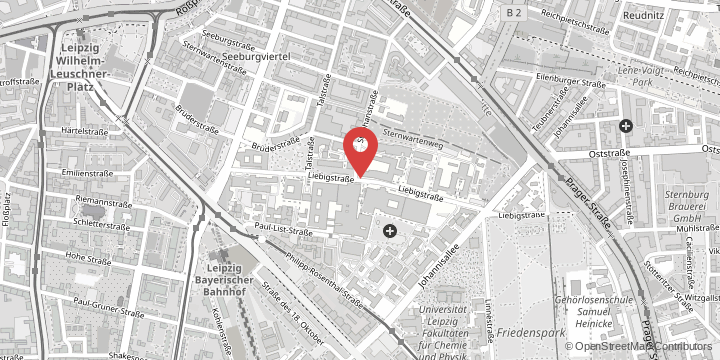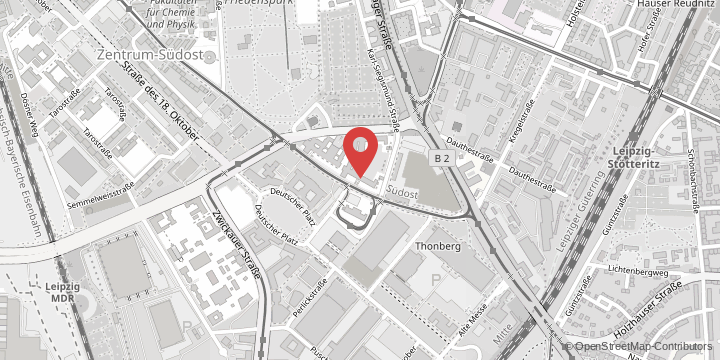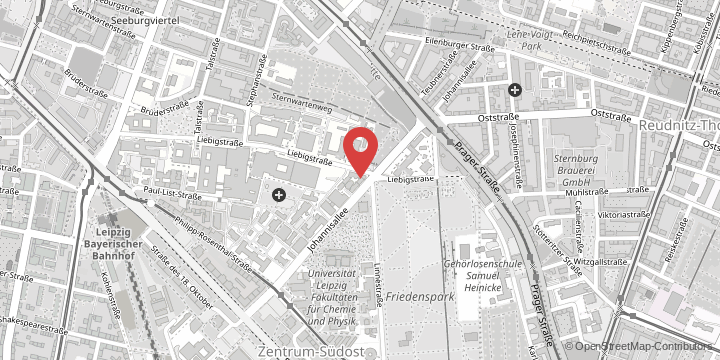As a European funding programme, Erasmus+ offers our university a wide range of opportunities in worldwide higher education cooperation with Erasmus+ Partner Countries and Programme Countries. The Erasmus+ programme has given rise to a number of partnerships. Experience abroad for students, lecturers and university staff is at the heart of the funding programme, which supports international university cooperation in teaching and study.
Erasmus+ generation 2021 to 2027
The EU is stepping up funding, earmarking more than €26 billion for Erasmus+ in the multiannual financial framework, 2021 to 2027.
The Erasmus Charter for Higher Education 2021 to 2027 (ECHE) entitles our university to participate in the Erasmus+ programme from 2021 to 2027. Our specific programme objectives are set forth in an Erasmus policy statement for Higher Education 2021–2027.
At our university, the International Centre is responsible for the central coordination of the programme. Our Erasmus+ university coordinator is Anne Vorpagel.
There are three Erasmus+ Key Actions, which is the collective name for activities and projects that can be funded in the area of higher education:
- Funding of mobility
- Promotion of cooperative projects
- “Erasmus+ policy support”
The Key Actions are complemented by Jean Monnet Activities and funding for sports projects
- Erasmus+ Programme Countries are the 27 EU Member States, Turkey, Norway, Iceland, Liechtenstein, the Republic of Macedonia and Serbia.
- Partner Countries are the neighbouring countries of the EU, countries of the regions of Asia, Central Asia, Latin America, the ACP countries (African, Caribbean and Pacific states) and other industrialised countries.
- The UK (mobility funding through Erasmus+ and Turing Scheme) and Switzerland (mobility funding through Swiss European Mobility Programme - SEMP) are among the partner countries.
Promoting academic mobility
By promoting academic mobility, we support the exchange of university members between our university and institutions in Partner and Programme Countries. Browse international exchange places to study as well as teach abroad.
As part of Erasmus+ "Credit Mobility between Programme Countries", we can support our students and our teaching and university staff during periods abroad at institutions in Programme Countries.
Our university’s International Centre (SI) is responsible for central coordination of the Erasmus+ programme.
Student mobility
Blended/mixed short-term mobility
The Erasmus+ programme offers university members the new option of carrying out stays abroad in a "blended" format in future. The aim is flexible and innovative learning and teaching within the framework of joint projects and/or online courses (e. g. summer school, workshop, colloquium). This format combines virtual and physical mobility phases in close cooperation with one or more partner universities in the European Erasmus+ area with which an inter-institutional Erasmus+ agreement already exists or within the framework of the Arqus Alliance. The timing and duration of the virtual component are variable, the physical mobility comprises 5–30 days. Students should obtain at least 3 credit points for participation.
Erasmus+ offers two options for the realisation of short-term mobility projects: As a "Blended Mobility Project" (BMP) with one partner university or as a "Blended Intensive Programme" (BIP) with at least two partner universities from different European countries. An application must be submitted to the SI for both options. Funding for the participants or the implementation of the programme requires a positive response to the application and the allocation of Erasmus+ third-party funding to Leipzig University.
- International Blended Mobility Project (BMP) with a partner university, applications must be submitted at least 3 months before the start of the project
You can find the call and application form on the intranet. - International Blended Intensive Programme (BIP) with two partner universities, applications can be submitted until 16 December 2024
You can find the call and application form on the intranet.
Staff mobility
Spending time at our university
Given our institutional links with partner institutions in the Programme Countries, under Erasmus+ members of international universities have the opportunity to stay with us in return:
Inter-institutional agreement
Mobility can be funded if an inter-institutional agreement is in place with a higher education institution in a Programme Country. Agreements are prepared by the Erasmus+ coordinators at the faculties and institutes in consultation with the foreign cooperation partners and digitally finalised by our university’s International Centre. Arrangements on the mutual recognition of academic achievements and on the integration of teaching stays into the curriculum at both institutions form the basis of such agreements.
Erasmus+ coordinators
Dedicated Erasmus+ coordinators are authorised by the deans to assume organisational responsibility for Erasmus+ mobility. They are responsible for
- the conceptual design of the Erasmus+ cooperation for student and staff mobility (except for mobility cooperations within joint study programmes, which are managed through the responsible person of the degree programme)
- the subject-related arrangements for acaemic mobility in an inter-institutional agreement
- selecting participants
- Erasmus+ International Academic Mobility Funding 2024 – 2027, applications can be submitted until 5 December 2024
You can find the call and application form on the intranet.
Erasmus+ "International Credit Mobility between Programme and Partner Countries" means that it is also possible to provide financial support for study, teaching and training visits to selected partner institutions in the Erasmus+ Partner Countries. One special feature of this part of Erasmus+ is our university’s responsibility for supporting stays by members of the foreign partner institutions at out faculties and institutions.
Our International Centre is in charge of applications and implementing Erasmus+ funding projects for subject-based exchanges.
You can find details of possible funding for study places in the database for international exchange places and for teaching and training options at our university in the database for international staff mobility.
Support is available for academic stays at institutions in eligible Partner Countries
as well as for academic stays at our university
Currently the following insitutions of Higher Education are eligible for funding:
| Region (according to Erasmus+) | Country | Partner institution |
|---|---|---|
| Region 1 – Western Balkans | Bosnia and Herzegovina | International University Travnik University of Sarajevo |
| Kosovo | University of Pristina | |
| Montenegro | University of Montenegro | |
| Region 2 – Neighbourhood East | Moldova | Moldova State University Pedagogical State University of Chișinău „Ion Creangă“ State University of Balti „Alecu Russo“ State University of Cahul „Bogdan Petriceicu Hasdeu“ State University of Cahul „Bogdan Petriceicu Hasdeu“ State University of Medicine and Pharmacy „Nicolae Testemitanu“ Technical University of Moldova |
| Ukraine | Ivan Franko National University of Lviv National University of „Kyiv-Mohyla Academy“ Taras Shevchenko National University of Kyiv | |
| Region 3 – South-Mediterranean Countries | Egypt | Ain Shams University |
| Israel | Bar-Ilan University Ben-Gurion University of the Negev Hebrew University of Jerusalem Tel Aviv University University of Haifa | |
| Jordan | German Jordanian University | |
| Region 5 – Asia | Indonesia | Universitas Gadjah Mada Universitas Hasanuddin |
| Japan | Chiba University Hiroshima University Keio University Waseda University | |
| South Korea | Hankuk University of Foreign Studies Sogang University | |
| Taiwan | Wenzao Ursuline College of Languages | |
| Vietnam | Hanoi University of Science and Technology University of Languages & International Studies | |
| Region 8 – Pacific | Australia | Macquarie University Monash University |
| New Zealand | University of Otago | |
| Region 9 – Sub-Saharan Africa | Benin | IRGIB-Africa |
| Cameroon | Université de Yaoundé | |
| Ehtiopia | Addis Ababa University | |
| Ghana | Kwame Nkrumah University of Science and Technology | |
| Kenya | Mount Kenya University | |
| Mozambique | Universitade Pedagógica Maputo University of Rovuma | |
| Nigeria | University of Ibadan | |
| Rwanda | Institut d'Enseignement Superieur de Ruhengeri | |
| South Africa | Stellenbosch University | |
| Tanzania | University of Dar Es Salaam | |
| Uganda | Makerere University | |
| Region 10 – Latin America | Chile | Pontificia Universidad Catolica Universidad Católica de Temuco Universidad de Chile Universidad de Concepción |
| Colombia | Colegio Mayor De Nuestra Senora Del Rosario Universidad EAFIT |
Promoting cooperative projects
Within Key Action 2: “Cooperation among organisations and institutions”, the European Union supports partnerships and collaborative projects with institutions in Programme and Partner Countries.
Erasmus+ offers various funding lines for this purpose, which can be used to support and fund partnerships and collaborative projects on request.
Erasmus+ “Cooperation Partnerships” promote structured cooperation between European organisations to support their internationalisation activities.
- Horizontal priorities:
- inclusion and diversity
- digital transformation
- environment and fight against climate change
- common values, civic engagement and participation
- Sector specific priorities in the field of higher education:
- promoting inter-connected higher education systems
- stimulating innovative learning and teaching practices
- developing STEM/STEAM in higher education, in particular women participation in STEM
- rewarding excellence in learning, teaching and skills development
- building inclusive higher education systems
- supporting digital and green capabilities of the higher education sector
Information about the programme and the application procedure is available on the Erasmus+ website of the European Commission.
Current examples of Cooperation Partnerships are presented on the Project funding page.
Since 2004, the EU’s Erasmus Mundus excellence programme has been encouraging European universities to pursue the internationalisation of their degree programmes. The so-called Erasmus Mundus Joint Master Degrees (EMJMD) are now part of the EU’S wider Erasmus+ programme.
The aim is to internationalise curricula within the European Higher Education Area in cooperation with Partner Countries. This goal is achieved by implementing integrated master’s programmes in a consortium of at least three European partner universities, including:
- the awarding of degrees together in the form of joint double or multiple degrees, and
- support for qualified student mobility through scholarships integrated into the programme for the mandatory period abroad.
This selection process is highly competitive and the inclusion of a degree programme in the Erasmus Mundus funding framework is a special distinction in terms of curricular quality. This presupposes the successful establishment of a degree programme prior to application.
The Erasmus+ Programme (2021 – 2027) offers two funding lines for higher education cooperation under the Erasmus Mundus programme to support transnational courses of excellence for highly qualified students:
- Erasmus Mundus Joint Master: Transnational degree programmes of excellence for highly qualified students leading to a multiple or joint degree make the Erasmus Mundus Joint Master (EMJM) programme line an attractive funding instrument for European higher education institutions.
- Erasmus Mundus Design Measures: This funding line supports preparatory measures for the development of a transnational joint Master's degree programme.
Information about the programme and the application procedure is available on the European Commission's Erasmus+ website and from the Executive Agency of the EU Commission (EACEA).
Current examples of Erasmus Mundus Joint Master Degrees are presented on the Project funding page.
Capacity building projects support the relevance, quality, modernisation and responsiveness of higher education in third countries not associated to the Erasmus + programme for socio-economic recovery, growth and prosperity through joint projects in the following areas:
- modernising higher education administration and management
- promoting innovation and strengthening the connection of higher education institutions with society
- quality and relevance of education
- inclusion
- structural reforms
Information about the programme and the application procedure is available on the European Commission's Erasmus+ website and from the Executive Agency of the EU Commission (EACEA).
Jean Monnet Actions support teaching and research in the field of European Union studies worldwide. By EU studies it is meant the study of Europe in its entirety, with particular emphasis on the EU dimension, from an internal but also from a global perspective.
The following forms are supported:
- Modules
- Chairs
- Centres of Excellence
Information about the programme and the application procedure is available on the European Commission's Erasmus+ website and from the Executive Agency of the EU Commission (EACEA).
Current examples of Jean Monnet Activities are presented on the Project funding page.
The European Commission's Erasmus+ website provides information on further funding lines.































































